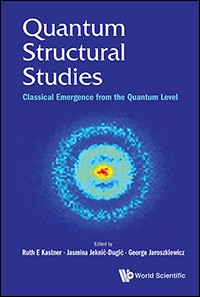Group members
Publications(our / comprehensive list)
Composite quantum systems can be differently decomposed -- differently structured -- in to subsystems. In classical physics, such structural considerations are typically considered physically artificial--a mathematical artifact.
However, in the quantum mechanical context, the structural considerations bring some classically unknown, non-trivial observations of foundational as well as of interest for certain applications e.g. in quantum information and open quantum systems theory.
This emerging research direction is yet properly to be appreciated. Apparently simple, the basic concepts are sometimes misconstrued. Our approach to the topic can be found here.
On this page we present some basic results, some of which may be surprising. Below is a list of some recent results of our team that are corollaries of the universally valid and complete quantum mechanics.
-- Quantum Universe does not have a privileged global structure.
-- There may be the decoherence-induced classicality for more than one Universe structure -- the so-called Parallel occurrence of decoherence (POD).
-- Quantum correlations (in open or closed, finite- or
infinite-dimensional systems) is structure
dependent -- the so-called Quantum
correlations relativity (QCR). Some consequences
of QCR.
A method for avoiding decoherence
The environment selects a preferred
structure for the open (bipartite) systems [for
some realistic models]
Inapplicability of the modern Everett interpretation in the quantum Brownian motion
A limitation of the Nakajima-Zwanzig projection methodSubtleties (event the puzzles!) regarding the concept of complete positivity of the dynamical maps are easy understood by Quantum Structures
-- Separation of the quantum Universe into approximately
closed systems allows for a new physical paradigm of Local
Time -- the so-called Local
Time
Scheme.

 ***New Book***
***New Book***